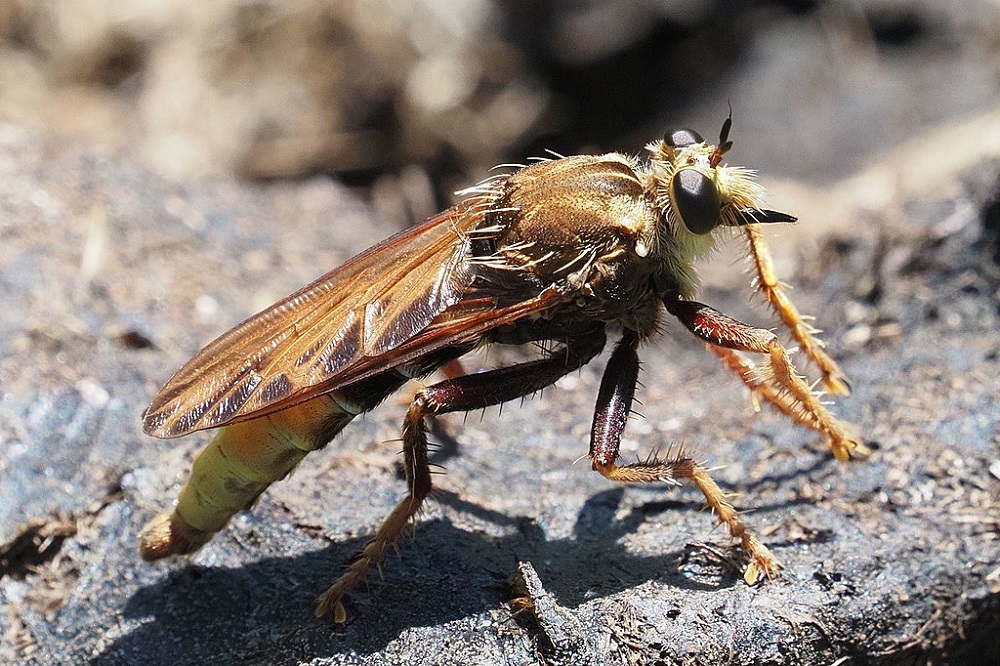UK’s largest fly spotted in Wales for first time since 2007

The UK’s largest fly has been spotted in Wales for the first time since in 16 years.
Natural Resources Wales (NRW) recorded the presence of the endangered Hornet Robber Fly (Asilus crabroniformis) in the Old Cilgwyn & Cae Helsop Site of Special Scientific Interest (SSSI).
The fly is an important species to the area but hadn’t been spotted in Wales since 2007. The last recorded sighting in the SSSI was 2003.
As one of a number of priority species included in the UK Biodiversity Action Plan (UK BAP), conservation efforts have been put in place to improve population numbers and bring the species back from potential extinction.
Numbers have declined in recent years due to a loss of habitat to agriculture and development and because the Robber Fly’s breeding cycle makes it especially vulnerable to the use of chemical treatments in grazing stock.
Chemicals
The fly lays its eggs in the dung of grazing animals like cows and horses. Chemicals used to treat parasites in these animals can have the added effect of deforming or killing the offspring, with even a single poorly timed treatment leading to a huge loss to the population.
By working with landowners and managers and timing the treatment of livestock against the Robber Fly’s breeding season, NRW has been successful in lowering the threat to the species and ensure more of the offspring make it to adulthood.
Michael Sneade, conservation advisor for NRW, said: “The Hornet Robber Fly is one of the UK’s biggest flies and is a top predator in the insect world both as larvae and as adults. They play a large role in keeping the delicate ecological balance and their presence is usually proof that the area has a high biodiversity value.
“The species has been at risk since the widespread use of pesticides to treat internal parasites in livestock and numbers are continuing the dwindle across the UK. We have a special responsibility to ensure this important insect can continue to help the ecosystem function in balance.
“We have worked tirelessly with the landowner at this site to safeguard one of the last strongholds of this particular species of fly in Ceredigion. To see record numbers at this SSSI has been a real joy for us and a clear confirmation that correct management practices really are key to ensuring this species can live and thrive alongside people, now and in the future.”
Support our Nation today
For the price of a cup of coffee a month you can help us create an independent, not-for-profit, national news service for the people of Wales, by the people of Wales.






